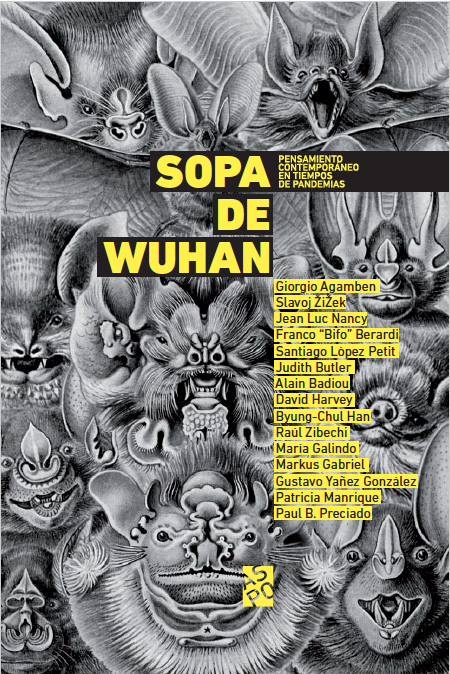
Sopa de Wuhan es una compilación de pensamiento contemporáneo en torno al COVID 19 y las realidades que se despliegan a lo largo del globo. Reúne la producción filosófica (en clave ensayística, periodística, literaria, etc.) que se publicó a lo largo de un mes –entre el 26 de febrero y el 28 de marzo de 2020–. La antología presenta a pensadores y pensadoras de Alemania, Italia, Francia, España, EEUU, Corea del Sur, Eslovenia, Bolivia, Uruguay y Chile. Sopa... junta en un volumen lo que ya es público y está al alcance de un click. Tan solo propone un “orden” de lectura, acerca algunos datos biográficos sobre les autorxs e intenta poner en una línea de tiempo una serie de debates. Busca reflejar las polémicas recientes en torno a los escenarios que se abren con la pandemia del Coronavirus, las miradas sobre el presente y las hipótesis sobre el futuro. ASPO (Aislamiento Social Preventivo y Obligatorio) es una iniciativa editorial que se propone perdurar mientras se viva en cuarentena, es un punto de fuga creativo ante la infodemia, la paranoia y la distancia lasciva autoimpuesta como política de resguardo ante un peligro invisible.
Authors
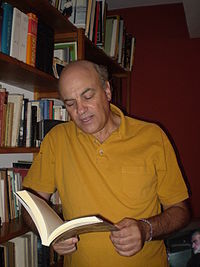
Raúl Zibechi (nacido el 25 de enero de 1952 en Montevideo) es un escritor y pensador-activista uruguayo, dedicado al trabajo con movimientos sociales en América Latina. Entre 1969 y 1973 fue militante del Frente Estudiantil Revolucionario (FER), agrupación estudiantil vinculada al Movimiento de Liberación Nacional Tupamaros. Bajo la dictadura militar, iniciada en 1973, fue activista en la resistencia al régimen hasta que en 1975 se trasladó a Buenos Aires (Argentina) para exiliarse en 1976, después del golpe militar en ese país, en Madrid, España, donde estuvo vinculado durante más de diez años al Movimiento Comunista en tareas de alfabetización de campesinos y en el movimiento antimilitarista contra la OTAN. Hacia mediados de la década de 1980 comenzó a publicar artículos en revistas y periódicos de izquierda (Página Abierta, Egin, Liberación) y en medios latinoamericanos (Página /12, Argentina) y Mate amargo (Uruguay). Al regresar a Uruguay, publicó en el semanario Brecha, del cual se convirtió en editor de Internacionales y ganó el Premio José Martí de Periodismo por sus análisis del movimiento social argentino en el entorno de la insurrección del 19 y 20 de diciembre de 2001. También trabajó en la revista ecologista Tierra Amiga, entre 1994 y 1995. Desde 1986, como periodista e investigador-militante ha recorrdio casi todos los países de América Latina, con especial énfasis en la región andina. Conoce buena parte de los movimientos de la región, y colabora en tareas de formación y difusión con movimientos urbanos argentinos, campesinos paraguayos, comunidades indígenas bolivianas, peruanas, mapuche y colombianas. Todo su trabajo teórico está destinado a comprender y defender los procesos organizativos de estos movimientos

Librarian Note: There is more than one author by this name in the Goodreads database. David Harvey (born 1935) is the Distinguished Professor of Anthropology at the Graduate Center of the City University of New York (CUNY). A leading social theorist of international standing, he graduated from University of Cambridge with a PhD in Geography in 1961. He is the world's most cited academic geographer (according to Andrew Bodman, see Transactions of the IBG, 1991,1992), and the author of many books and essays that have been prominent in the development of modern geography as a discipline. His work has contributed greatly to broad social and political debate, most recently he has been credited with helping to bring back social class and Marxist methods as serious methodological tools in the critique of global capitalism, particularly in its neoliberal form.
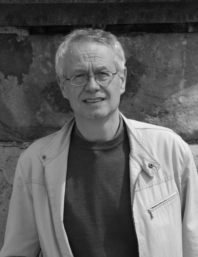
Licenciado en química, durante los años 1960 trabajó en una empresa de vidrio recuperada por sus trabajadores al mismo tiempo que militaba en sectores del movimiento autónomo. Después del fracaso del movimiento se dedicó a la filosofía crítica, recibiendo influencia tanto de los posestructuralistas franceses Michel Foucault y Gilles Deleuze, así como de los marxistas italianos Toni Negri, Raniero Panzieri y Mario Tronti. Después ha trabajado como profesor de filosofía contemporánea en la Universidad de Barcelona y ha impulsado iniciativas como Espai en blanc (Espacio en blanco) o dinero gratis como con el archivo digital de la autonomía obrera. De 1975 a 1977 formó parte del Colectivo de Estudios por la Autonomía Obrera. En sus obras filosóficas hace una crítica radical al presente y ha dado apoyo al movimiento 15 de mayo. (via wiki)

Slavoj Žižek is a Slovene sociologist, philosopher, and cultural critic. He was born in Ljubljana, Slovenia (then part of SFR Yugoslavia). He received a Doctor of Arts in Philosophy from the University of Ljubljana and studied psychoanalysis at the University of Paris VIII with Jacques-Alain Miller and François Regnault. In 1990 he was a candidate with the party Liberal Democracy of Slovenia for Presidency of the Republic of Slovenia (an auxiliary institution, abolished in 1992). Since 2005, Žižek has been a member of the Slovenian Academy of Sciences and Arts. Žižek is well known for his use of the works of 20th century French psychoanalyst Jacques Lacan in a new reading of popular culture. He writes on many topics including the Iraq War, fundamentalism, capitalism, tolerance, political correctness, globalization, subjectivity, human rights, Lenin, myth, cyberspace, postmodernism, multiculturalism, post-marxism, David Lynch, and Alfred Hitchcock. In an interview with the Spanish newspaper El País he jokingly described himself as an "orthodox Lacanian Stalinist". In an interview with Amy Goodman on Democracy Now! he described himself as a "Marxist" and a "Communist."
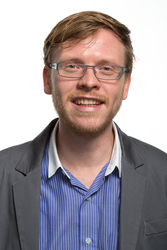
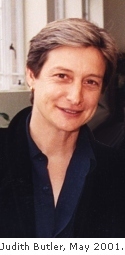
Judith Butler is an American post-structuralist and feminist philosopher who has contributed to the fields of feminism, queer theory, political philosophy and ethics. They are currently a professor in the Rhetoric and Comparative Literature departments at the University of California, Berkeley. Butler received their Ph.D. in philosophy from Yale University in 1984, for a dissertation subsequently published as Subjects of Desire: Hegelian Reflections in Twentieth-Century France. In the late-1980s they held several teaching and research appointments, and were involved in "post-structuralist" efforts within Western feminist theory to question the "presuppositional terms" of feminism. Their research ranges from literary theory, modern philosophical fiction, feminist and sexuality studies, to 19th- and 20th-century European literature and philosophy, Kafka and loss, and mourning and war. Their most recent work focuses on Jewish philosophy and exploring pre- and post-Zionist criticisms of state violence.

Byung-Chul Han, also spelled Pyŏng-ch'ŏl Han (born 1959 in Seoul), is a German author, cultural theorist, and Professor at the Universität der Künste Berlin (UdK) in Berlin, Germany. Byung-Chul Han studied metallurgy in Korea before he moved to Germany in the 1980s to study Philosophy, German Literature and Catholic theology in Freiburg im Breisgau and Munich. He received his doctoral degree at Freiburg with a dissertation on Martin Heidegger in 1994. In 2000, he joined the Department of Philosophy at the University of Basel, where he completed his Habilitation. In 2010 he became a faculty member at the HfG Karlsruhe, where his areas of interest were philosophy of the 18th, 19th and 20th century, ethics, social philosophy, phenomenology, cultural theory, aesthetics, religion, media theory, and intercultural philosophy. Since 2012 he teaches philosophy and cultural studies at the Universität der Künste Berlin (UdK), where he directs the newly established Studium Generale general-studies program. Han is the author of sixteen books, of which the most recent are treatises on what he terms a "society of tiredness" (Müdigkeitsgesellschaft), a "society of transparency" (Transparenzgesellschaft), and on his neologist concept of shanzai, which seeks to identify modes of deconstruction in contemporary practices of Chinese capitalism. Han's current work focuses on transparency as a cultural norm created by neoliberal market forces, which he understands as the insatiable drive toward voluntary disclosure bordering on the pornographic. According to Han, the dictates of transparency enforce a totalitarian system of openness at the expense of other social values such as shame, secrecy, and trust. Until recently, he refused to give radio and television interviews and rarely divulges any biographical or personal details, including his date of birth, in public. Han has written on topics such as attention deficit hyperactivity disorder, borderline, burnout, depression, exhaustion, internet, love, pop culture, power, rationality, religion, social media, subjectivity, tiredness, transparency and violence.


Alain Badiou, Ph.D., born in Rabat, Morocco in 1937, holds the Rene Descartes Chair at the European Graduate School EGS. Alain Badiou was a student at the École Normale Supérieure in the 1950s. He taught at the University of Paris VIII (Vincennes-Saint Denis) from 1969 until 1999, when he returned to ENS as the Chair of the philosophy department. He continues to teach a popular seminar at the Collège International de Philosophie, on topics ranging from the great 'antiphilosophers' (Saint-Paul, Nietzsche, Wittgenstein, Lacan) to the major conceptual innovations of the twentieth century. Much of Badiou's life has been shaped by his dedication to the consequences of the May 1968 revolt in Paris. Long a leading member of Union des jeunesses communistes de France (marxistes-léninistes), he remains with Sylvain Lazarus and Natacha Michel at the center of L'Organisation Politique, a post-party organization concerned with direct popular intervention in a wide range of issues (including immigration, labor, and housing). He is the author of several successful novels and plays as well as more than a dozen philosophical works. Trained as a mathematician, Alain Badiou is one of the most original French philosophers today. Influenced by Plato, Georg Wilhelm Friedrich Hegel, Jacques Lacan and Gilles Deleuze, he is an outspoken critic of both the analytic as well as the postmodern schools of thoughts. His philosophy seeks to expose and make sense of the potential of radical innovation (revolution, invention, transfiguration) in every situation.

Giorgio Agamben is one of the leading figures in Italian and contemporary continental philosophy. He is the author of Homo Sacer: Sovereign Power and Bare Life; Remnants of Auschwitz: The Witness and the Archive; Profanations; The Signature of All Things: On Method, and other books. Through the 1970s, 1980s, and early 1990s he treated a wide range of topics, including aesthetics, literature, language, ontology, nihilism, and radical political thought. In recent years, his work has had a deep impact on contemporary scholarship in a number of disciplines in the Anglo-American intellectual world. Born in Rome in 1942, Agamben completed studies in Law and Philosophy with a doctoral thesis on the political thought of Simone Weil, and participated in Martin Heidegger’s seminars on Hegel and Heraclitus as a postdoctoral scholar. He rose to international prominence after the publication of Homo Sacer in 1995. Translated into English in 1998, the book’s analyses of law, life, and state power appeared uncannily prescient after the attacks on New York City and Washington, DC in September 2001, and the resultant shifts in the geopolitical landscape. Provoking a wave of scholarly interest in the philosopher’s work, the book also marked the beginning of a 20-year research project, which represents Agamben’s most important contribution to political philosophy.

Franco "Bifo" Berardi (born 2 November 1948 in Bologna, Italy) is an Italian Marxist theorist and activist in the autonomist tradition, whose work mainly focuses on the role of the media and information technology within post-industrial capitalism. Berardi has written over two dozen published books, as well as a more extensive number of essays and speeches. Unlike orthodox Marxists, Berardi's autonomist theories draw on psychoanalysis, schizoanalysis and communication theory to show how subjectivity and desire are bound up with the functioning of the capitalism system, rather than portraying events such as the financial crisis of 2008 merely as an example of the inherently contradictory logic of capitalist accumulation. Thus, he argues against privileging labour in critique and says that "the solution to the economic difficulty of the situation cannot be solved with economic means: the solution is not economic." Human emotions and embodied communication becomes increasingly central to the production and consumption patterns that sustain capital flows in post-industrial society, and as such Berardi uses the concepts of "cognitariat" and "info labour" to analyze this psycho-social process. Among Berardi's other concerns are cultural representations and expectations about the future—from proto-Fascist Futurism to post-modern cyberpunk (1993). This represents a greater concern with ideas and cultural expectations than the determinist-materialist expression of a Marxism which is often confined to purely economic or systemic analysis. (via Wikipedia)
